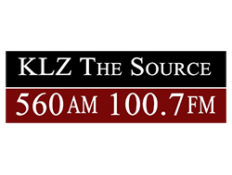
A couple of weeks ago I was discussing a trust with a client, and thought I had explained what a trustmaker, trustee, and trust beneficiary were. While I was talking about how only one of their kids would act as the Trustee, the client reacted with haste, exclaiming, “WHAT DO YOU MEAN ALL OF MY CHILDREN WILL NOT BE ON THE TRUST? THAT’S NOT WHAT I WANT AT ALL!” With a smile, I calmly re-explained the difference between a child being a beneficiary of a trust, and what the role of the trustee was. If you have ever experienced the same, or a similar, misunderstanding when working with any professional (like an estate planning attorney), please continue reading below.
At that point the client appeared to understand that the child was not being excluded from the trust, but simply that the roles were different. The client’s idea of being “on the trust” was at odds with my legal definitions.
Certainly my client was not trying to create confusion, and neither was I, but we needed to understand each other better before working together.
Trust Terminology and Function Needs Explanation
Many times when I am trying to explain the difference between a will and trust, or the differences between types of trusts, I think the fundamental definitions of roles in trust get lost. Perhaps by beginning the fundamentals of how a trust works, many misunderstandings could be avoided. That is what I plan to do in this blog, discuss the role of the three major actors in a trust and what they do.
First, we should start with what a trust is. A trust is a legal entity, created by a person known as a trustmaker, that owns assets for the use of a person, called a beneficiary. The trustee is a person who is in charge of trust assets and tasked with making sure the assets are used for their intended purposes.
Three Main Roles in a Trust
The three main roles for people involved in a trust are the trustmaker, the trustee, and the beneficiaries. Each role is distinct, so knowing the difference in function is important. In a revocable trust, the same person may act in all three roles, which can be confusing unless you understand when a person is acting in each role. Even though the same person may be acting in more than one role in a revocable trust, each district role has different responsibilities…as discussed here.
1. The Role of The Trustmaker
 Trustmaker is the first role. The trustmaker can also be referred to as the trustor, settlor, grantor, or a bunch of other words that mean the same thing. Simply put, the trustmaker is the person who creates the trust and brings it into legal existence. Since I am the one who drafts the document, many people assume this is me. It is not. The trustmaker is the person who tells me what they want to have happen with the assets inside of the trust. Usually, you are the trustmaker, and I am merely draft the trust.
Trustmaker is the first role. The trustmaker can also be referred to as the trustor, settlor, grantor, or a bunch of other words that mean the same thing. Simply put, the trustmaker is the person who creates the trust and brings it into legal existence. Since I am the one who drafts the document, many people assume this is me. It is not. The trustmaker is the person who tells me what they want to have happen with the assets inside of the trust. Usually, you are the trustmaker, and I am merely draft the trust.
A trust agreement is the written document. A trust agreement contains instructions for what to do with assets or property inside of the trust. A written trust agreement is not legally required for a trust to be created, but it is a good idea to have a written trust agreement. Can you imagine how many fights would come up if there was not a written trust agreement?
How a Trustmaker Functions in a Revocable Trust
In a revocable trust, the trustmaker retains the ability to revoke, amend, or change the terms of the trust. An irrevocable trust removes this ability from the trustmaker, and thus separates the person from their assets. This can provide asset protection, but also removes control of the assets from the person who creates the trust. Careful consideration must be given before creating an irrevocable trust. An irrevocable trust’s terms are set, so you want to do it right!
2. The Role of the Trustee: Controls Trust Property and Investments
 The trustee is the person who controls property inside of the trust and handles investment of trust property. The trustee is responsible for carrying out the terms of the trust agreement. A written trust agreement generally contains instructions for how trust assets can property be used. The trustee must use assets of the trust for proper purposes and for the proper beneficiaries. If a trustee uses trust assets for improper purposes, then the trustee can be removed. If a trustee uses trust funds for their own personal purposes, then the trustee may be subject to civil and criminal penalties in addition to being removed – depending on the severity of the action, and how much was misused or misappropriated. The trustee is legally bound to carry out the trust agreement’s instructions. This is referred to as a fiduciary duty…the responsibility to act in the best interest of the beneficiary, not in the trustee’s own interest.
The trustee is the person who controls property inside of the trust and handles investment of trust property. The trustee is responsible for carrying out the terms of the trust agreement. A written trust agreement generally contains instructions for how trust assets can property be used. The trustee must use assets of the trust for proper purposes and for the proper beneficiaries. If a trustee uses trust assets for improper purposes, then the trustee can be removed. If a trustee uses trust funds for their own personal purposes, then the trustee may be subject to civil and criminal penalties in addition to being removed – depending on the severity of the action, and how much was misused or misappropriated. The trustee is legally bound to carry out the trust agreement’s instructions. This is referred to as a fiduciary duty…the responsibility to act in the best interest of the beneficiary, not in the trustee’s own interest.
A trustee is also responsible for the investment of trust funds. The trustee must invest trust assets wisely. The legal standard is that of a reasonably prudent investor. A trustee should invest trust assets as a reasonably prudent person would. There is not a specific formula to follow, but risky investments should be avoided. The legal standard also generally means that investments should be diversified. Of course, diversification does not mean that all types of assets need to be used as investments. There are conservative investments like a large mutual fund, bond fund, annuities, life insurance policies, or other similar types of investments that are safe and can be used by a reasonably prudent investor trustee without needing to pick lots of different investments.
3. The Role of the Beneficiary – Receives Trust Property
 The beneficiary is the person or entity for whom the trust has been set up. The beneficiary receives the use and enjoyment of trust assets. A beneficiary may receive use of trust assets in many ways. Trust assets might be distributed to the beneficiary outright, or kept in trust and paid out for expenses the beneficiary incurs, or even a trust may pay for life expenses for the beneficiary before the beneficiary asks for the expense to be covered. How trust assets are expended and the timing of such expenditures depends a great deal on why the trust was set up and what is in the best interest of the beneficiary.
The beneficiary is the person or entity for whom the trust has been set up. The beneficiary receives the use and enjoyment of trust assets. A beneficiary may receive use of trust assets in many ways. Trust assets might be distributed to the beneficiary outright, or kept in trust and paid out for expenses the beneficiary incurs, or even a trust may pay for life expenses for the beneficiary before the beneficiary asks for the expense to be covered. How trust assets are expended and the timing of such expenditures depends a great deal on why the trust was set up and what is in the best interest of the beneficiary.
The trustmaker dictates how trust asset shall be used for a beneficiary in the trust agreement. That is a huge reason to create a trust…to allow the trustmaker to continue to control trust assets after death, or control trust asset for the benefit of a beneficiary.
When the Three Roles Collide in a Revocable Trust
In a revocable trust, a trustmaker is usually the trustee while alive, and also the primary beneficiary of a trust. This means when you set up a revocable trust, you can use the property inside the trust for yourself while you are alive. Secondary beneficiaries in a trust, commonly identified as death beneficiaries, are also identified in a trust agreement, stating who will receive trust property when the trustmaker passes away. Without a proper understanding of roles in a trust, it would be easy to confuse what one person is doing and what role the person is playing at a specific time. A trust agreement may identify what a trustmaker can do, a trustee can do, and who the beneficiaries are by role and title, instead of the person by name. This allows the roles to remain defined and allows the trust to work properly and to accomplish the purpose of a trust, even after trust creator passes away. Knowing each role allows the trust to do what it is supposed to do.
Colorado Residents: Are You Ready to Embrace Your Role in a Trust?
If you have questions about who should fulfill what role in our trust, or on how to set up a trust, please make an appointment here:

 720-730-7274
720-730-7274










Nice Article.
My mother has a revocable Living trust. She has dementia and I (her son) have been handling all of her affairs for the last 10 years (as noted in the Trust plus I am her POA).
About 3 years ago I purchased annuities for her with a portion of this trust money. Just receive a letter from New York life asking me questions as to whether my mother’s fixed annuities with them are from Grantor Trusts (and if so to fill out a form and return to them).
I am not sure how to tell. They also said the if not a Grantor that I should be including her annual annuity value increases in her Federal Tax return. How do I tell what is and is not a certain type and if not Grantor should I have been paying taxes on her annual value increase.
Seems funny if so because I have Fixed Annuities myself and was told I didn’t have to pay taxes on those until I cash out of them,
Appreciate you comments!!
Steve
Where is this posted so that I can see any responses?
Steve
Steve,
Comments need to be approved before they post, and the blog is not monitored all the time, so when the comments are approved, they appear in the comments section. Thank you for your patience in awaiting a response.
Hello Steve,
The questions you are asking are the type that would require an examination of the trust to determine if it is a grantor type trust. Almost all revocble trusts are grantor trusts, but without seeing the trust, I cannot be certain. If you would like me to review the trust and give you specific advice, then you should contact me directly at the number on my website, and we can set up a time to meet and discuss your situation, and I could give specific legal advice to you on your matter for my hourly fee. Thank you for asking.